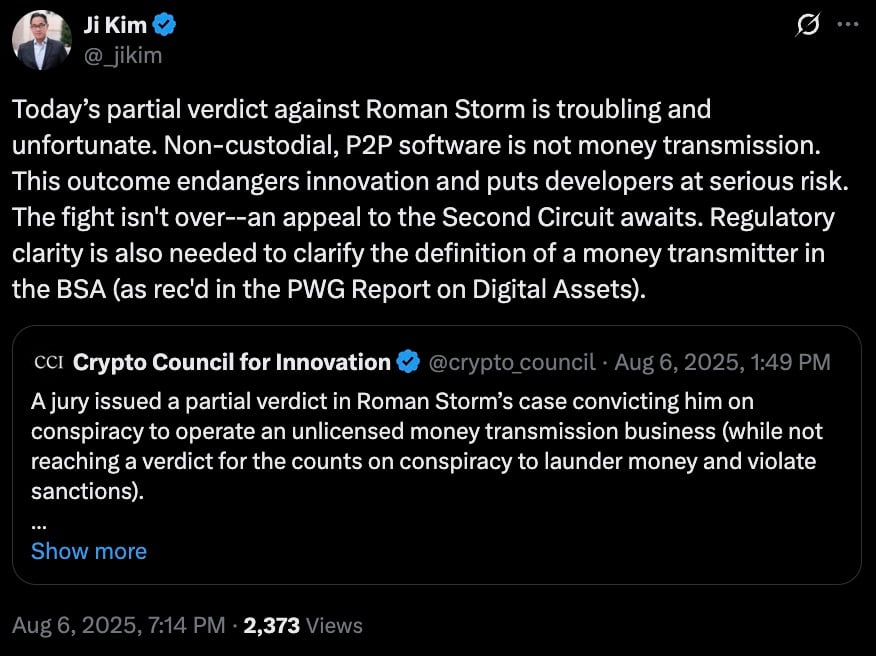Roman Storm’s guilty verdict is sending shockwaves through privacy advocates and the open-source development community, with many warning it could change how the US criminal justice system treats creators of decentralized tools.
A federal jury in New York on August 6 convicted the Tornado Cash co-founder of operating an unlicensed money-transmitting business, a charge that could carry up to five years in prison. Jurors could not agree on two other allegations, conspiracy to launder money and conspiracy to breach US sanctions, leaving prosecutors the option to bring those charges to trial again.
More: The Case That Could Silence the Open Internet
Tornado Cash, launched in 2019 by Storm along with Alexey Pertsev and Roman Semenov, was designed to obscure the origins of cryptocurrency transactions and give users financial privacy.
Although the protocol never took control of user funds, US authorities claimed it had been exploited for laundering illicit proceeds and sanctioned it before later reversing that decision in March. Pertsev is facing trial in the Netherlands, Semenov is still wanted by the FBI, and Storm’s arrest took place a year after Pertsev’s.
In September 2024, Judge Katherine Failla allowed the case to move forward, ruling that Tornado Cash met the definition of a money transmitter under federal law and should have followed Anti-Money Laundering and Know Your Customer rules. Privacy supporters have long argued that holding developers accountable for the actions of users, particularly when they lack the technical ability to intervene, creates a dangerous precedent.
The Blockchain Association, a crypto policy group, called the decision “a dangerous precedent for open-source software developers.”
In an earlier amicus brief, it said Storm had no custody or control over the funds moving through Tornado Cash and warned the ruling could lead to criminal charges against creators of browsers, messaging apps, or other tools if those were misused.
Industry groups are already pushing for legislative changes. The Solana Policy Institute is calling for Congress to pass the CLARITY Act, aimed at defining which decentralized activities fall outside money transmitter rules. The Blockchain Association accused the current administration of using “regulation by prosecution” and urged a different approach.
The Crypto Council for Innovation called an appeal “necessary.” CEO Ji Kim said, “regulatory clarity is also needed to clarify the definition of a money transmitter.” Storm has not commented publicly on his conviction, and his sentencing date has not yet been set.

Support for his defense is growing. The Ethereum Foundation pledged to match $500,000 in contributions. “Privacy is normal, and writing code is not a crime,” said co-executive director Hsiao-Wei Wang.










